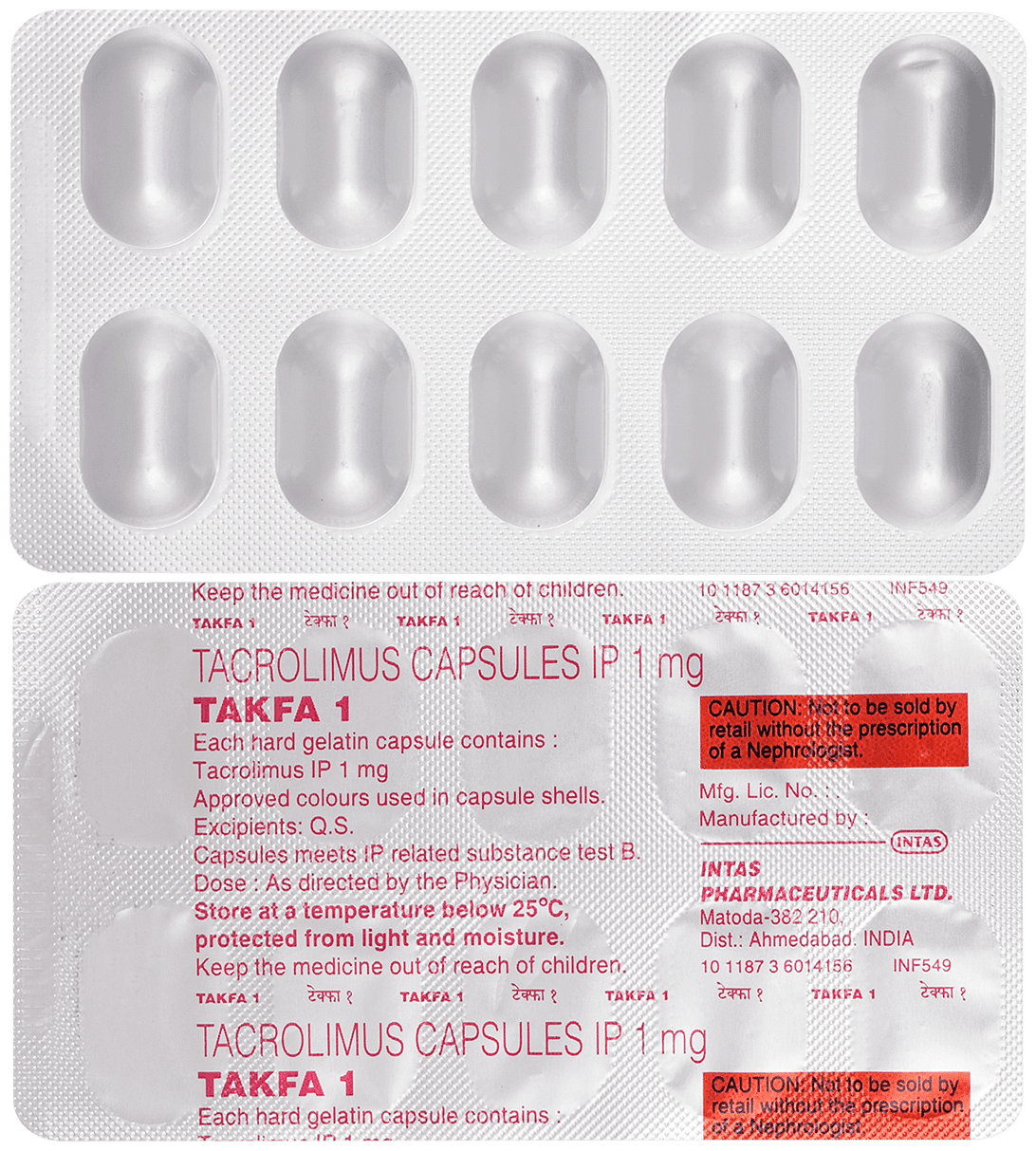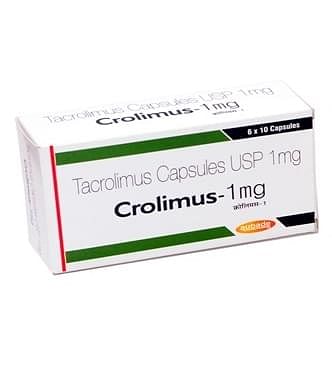
Ponograft 1mg Capsule
Manufacturer
Ponoogun Healthcare Pvt Ltd
Salt Composition
Tacrolimus (1mg)
Key Information
Short Description
Ponograft 1mg Capsule is used to prevent organ rejection in transplant patients by weakening the body's immune system.
Dosage Form
Capsule
Introduction
Ponograft 1mg Capsule is an immunosuppressant used along with other medicines to prevent your body from rejecting a new organ (e.g., liver, kidney, or heart) after transplant. It works by suppressing your body's immune response following the transplant of an organ (e.g., liver, kidney, or heart). This helps your body to accept the new organ as if it were your own.
Directions for Use
Take this medicine in the dose and duration as advised by your doctor. Ponograft 1mg Capsule is to be taken empty stomach.
Safety Information
Side Effects
No common side effects listed.
Alcohol Warning
It is unsafe to consume alcohol with Ponograft 1mg Capsule.
Breastfeeding Warning
Ponograft 1mg Capsule is probably unsafe to use during breastfeeding. Limited human data suggests that the drug may pass into the breastmilk and harm the baby.
Pregnancy Warning
Ponograft 1mg Capsule may be unsafe to use during pregnancy. Although there are limited studies in humans, animal studies have shown harmful effects on the developing baby. Your doctor will weigh the benefits and any potential risks before prescribing it to you. Please consult your doctor.
Interacting Medicines
Rotavirus vaccine (live attenuated oral) Live Attenuated Varicella-Zoster Virus Measles Vaccine (Live) Rubella vaccine (Live)
How it works
Ponograft 1mg Capsule is an immunosuppressant. It works by suppressing your body's immune response following the transplant of an organ (e.g., liver, kidney, or heart). This helps your body to accept the new organ as if it were your own.
Quick Tips
Ponograft 1mg Capsule is used to prevent organ rejection in transplant patients. It may take 3 to 4 months for the medication to work. Keep taking it as prescribed. Your doctor may monitor your kidney function regularly. Drink 8 to 10 glasses of water per day to help with your kidney function. Do not stop taking Ponograft 1mg Capsule without talking to your doctor first. Your doctor may get regular blood tests done to check the levels of blood cells in your blood. Inform your doctor if you experience unexplained bruising or bleeding, sore throat, mouth ulcers, fever, or general illness. Your doctor may monitor your kidney function regularly. Drink 8 to 10 glasses of water per day to help with your kidney function.
Related Medicines

Takfa 1 Capsule

Pangraf 1 Capsule

Tacloran 1 Capsule

Olmis 1mg Capsule

Tacronic 1mg Capsule

Tacrolim 1mg Capsule

Tacimun 1mg Capsule

Tacromist 1mg Capsule

Tacrorite 1mg Capsule

Crolimus 1mg Capsule
Frequently asked questions
Is Ponograft 1mg Capsule an antibiotic?
Yes, Ponograft 1mg Capsule is an antibiotic belonging to the macrolide group. It is mainly used after organ transplantation. This medication's immunosuppressive property helps prevent organ rejection following kidney, heart, or liver transplant.
Which vaccines should not be taken while taking Ponograft 1mg Capsule?
You should avoid taking live vaccines (vaccines that use pathogens that are still alive, but are attenuated, or weakened) while taking Ponograft 1mg Capsule. These may include vaccinations for measles, mumps, rubella, BCG (TB vaccine), yellow fever, chicken pox and typhoid. You should also avoid taking polio drops (by mouth) or flu vaccine (through nose).
Who should not take Ponograft 1mg Capsule?
Patients who are allergic to Ponograft 1mg Capsule or have a weakened immune system, high blood pressure, and kidney failure should avoid it. This medicine is also to be avoided in pregnant or breastfeeding women, and people planning to receive any live vaccines (e.g. MMR vaccine).
What should I tell my doctor before taking Ponograft 1mg Capsule?
Inform your doctor if you are pregnant, have allergies, long-term infection, high blood sugar, or high blood pressure. You should also inform your doctor if you have high blood potassium levels or a weakened immune system. Tell your doctor if you have a history of any medication, have recently received, or are scheduled to receive a live vaccine.
What should I be aware of before I start taking Ponograft 1mg Capsule?
This medicine suppresses the immune system, therefore there is always an increased risk of infection. Moreover, in some cases, Ponograft 1mg Capsule can increase the risk of certain cancers such as skin and lymph gland cancer (lymphoma). It may lower your immune system's ability to fight infections. Consult your doctor before starting this medication. If you notice any symptoms like fever, sweats or chills, cough or flu-like symptoms, muscle aches, warm, red, or painful areas on your skin, seek medical attention immediately.
Does Ponograft 1mg Capsule have an abuse potential?
No, Ponograft 1mg Capsule does not have an abuse potential and is therefore not a controlled substance. Controlled substances have a high risk of abuse so they need permission from authorities and doctors for use.


